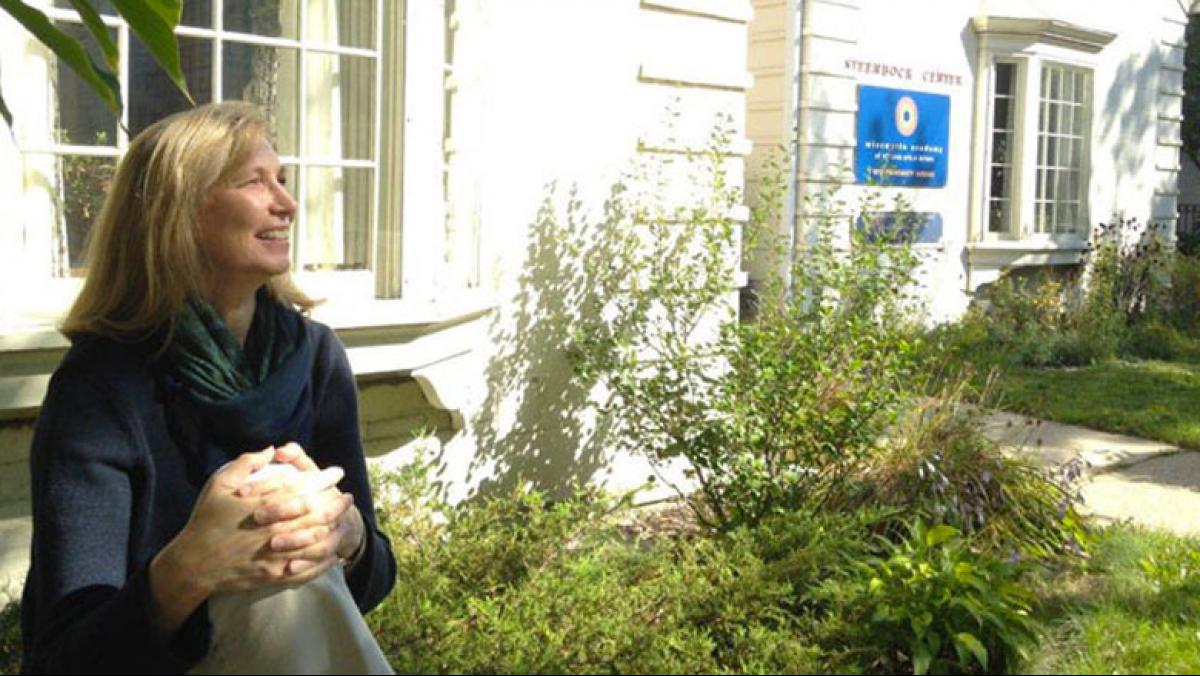Midwesterners pay a lot of attention to sun and rain, and checking the weather report is part of our daily routine. Most of us, though, aren’t checking our mobile devices to see what tomorrow’s soil conditions will be. Perhaps we should.
It turns out that, for all of its efficiencies, modern agriculture isn’t particularly efficient when it comes to conserving and sustaining healthy soils. Yes, we’ve come a long way from the Dust Bowl Era; in fact, Wisconsin led the way with innovations such as contour cropping. However, most farming relies on plowing and tilling that loosens top soils for planting new crops, which makes these soils vulnerable to gushing rainstorms and strong winds. Conventional farming also depends heavily on industrial fertilizers and pesticides that can compromise the soil microbiome—the ecosystem of tiny organisms that cycle nutrients, hold moisture, and store carbon.
In the Midwest, we’ve lost nearly half of the soil that was here when the sodbusters first broke up the prairies, and we’re still losing soil every season. Some of the hallmarks of soil loss and degradation are easy to see, such as diminished field productivity and gullies full of muddy runoff after heavy rains. Others, such as runoff-fed dead zones in local lakes and the Gulf of Mexico, are indirect but major consequences of the nutrient-laden soils flowing into our waterways.
Continued soil loss of this magnitude is “a disaster waiting to happen,” according to Jo Handelsman, Director of the Wisconsin Institutes for Discovery. Handelsman was the keynote speaker at our Spring 2018 science conference, Science and the American Experiment, where the looming soil crisis was on the minds of several presenters. Handelsman pointed out how history shows that agricultural-based societies risk collapse when they’ve used up their soil, and she cautioned that scientific advances in fertilizers and genetics won’t do enough to offset loss of productivity due to declining soil. Fellow presenter William Barker, Associate Dean for Research in the College of Agriculture and Life Sciences at UW–Madison, noted that just attempting to sustain our current soil isn’t enough either. Barker said we need to incorporate restorative agriculture practices that regenerate healthy soils to begin to address the soil crisis.
At home and across the world, scientists are telling us that on a human-scale timeline, soil is essentially a finite resource. We’re simply not regenerating enough soil to replace what is eroding, and by the end of this century—particularly with the increase of slow-moving storms with catastrophic downpours—productive soils around the world could be very scarce.
So, if you eat food—fruits and vegetables, yes, but also meat and dairy products from grain-fed animals—what can you do? As a consumer, you can learn about how the foods you eat are produced and their impact on the soil, and choose to support regenerative producers. Farmers who are embracing low and no-till cultivation, cover crops, riverside buffers, and low-input or organic practices that can reduce erosion and revitalize soils are in the vanguard, but they are still very much in the minority.
The pathway we’re currently on is neither sustainable nor restorative. So as a society we need to re-think the status quo. Perhaps it is time for Wisconsin to again step in to a leadership role on how to keep its own—and the world’s—soils from slipping away.




